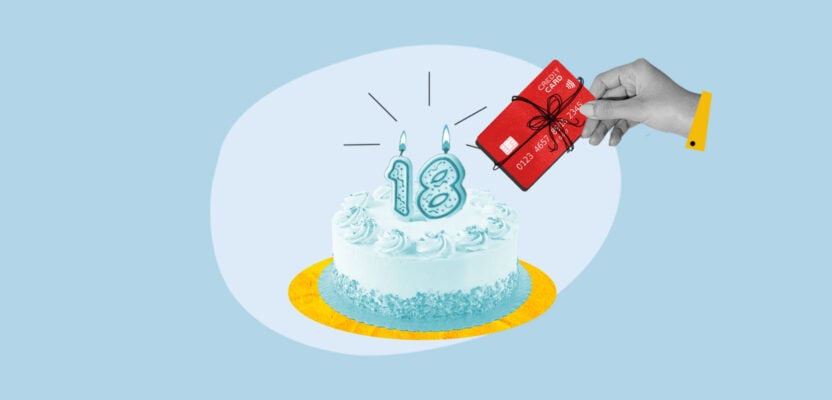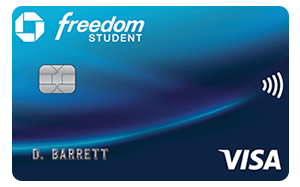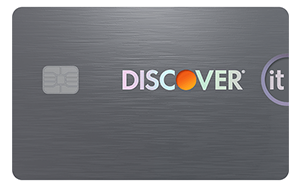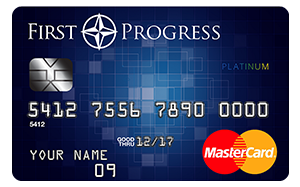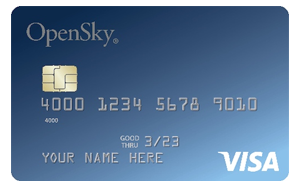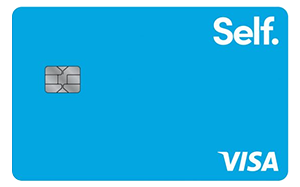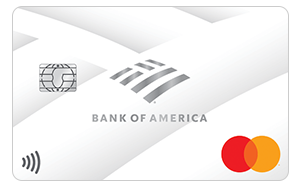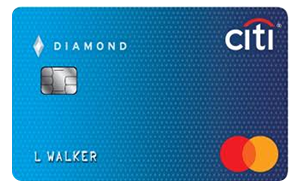Once you turn 18, you’re considered a legal adult and you can officially make legal agreements and sign contracts, including credit card contracts. However, even though technically you only need to be 18 years old to apply for a credit card of your own, federal law makes it difficult to get one if you’re under 21.
To maximize your chances of getting approved for a credit card at 18, you’ll need to understand what the requirements are and what you can do to meet them.
Table of Contents
How to meet credit card requirements when you’re under 21
Under the Credit Card Accountability Responsibility and Disclosure Act of 2009 (aka the Credit CARD Act), you can only get a credit card at 18 if you apply with a cosigner or show proof that you’re financially independent. 1 You’ll be rejected if you still depend on your parents or you’re a student with no income.
The Credit CARD Act applies to all banks and financial institutions, so if you can’t prove that you have a source of income, it’s unlikely that any company will approve you for a credit card before you turn 21.
This is one of the main dilemmas of building credit as a teenager. However, not all hope is lost. There are still three ways you can get a credit card at 18.
1. Get a job
Showing proof of employment is the simplest way to demonstrate that you’re financially independent at 18. If you’re serious about getting your first credit card right now and don’t want to wait a couple of years, then you can just get a job.
Once you have an employment contract and salary, you’ll be able to prove that you can afford the minimum monthly payments on a credit card. This will significantly boost your odds of approval.
What to put for “income” on your credit card application
When applying for a credit card at 18, make sure to specify your source of income, such as “employment” or “public benefits.” If you simply write “unemployed” or “student” in the income section of your credit card application and don’t provide any evidence that you have a steady income, then your application will likely get rejected.
2. Ask a parent to cosign your application
If you’re not ready to get a job and you don’t have any other source of income, then you can still open your own credit card account by getting someone you trust (like a parent or close friend) to cosign your application.
Bear in mind that cosigners are making a commitment to repay your debts if you don’t, so carefully consider the potential consequences before committing. Additionally, not all banks allow cosigners, so you may need to look around to find one that’ll accept your credit card application.
3. Become an authorized user
One other way to get a card when you’re 18 is to ask someone to make you an authorized user on their credit card. As an authorized user, you’ll receive your own copy of their card, although you won’t get your own separate line of credit—you’ll use the primary cardholder’s, and your credit limit will be tied to theirs.
Being an authorized user can benefit your credit score if the bank reports the primary cardholder’s account details to the credit bureaus. For best results, share the account with someone who has a good credit score and strong payment history.
Why you should get your first credit card while you’re young
You can start building credit at any age, but one of the secrets to establishing good or excellent credit is starting while you’re young. The length of your credit history is one of the factors that affect your credit score, and all the major credit scoring models reward consumers with longer credit histories.
Having a long track record of managing credit suggests that you’re less likely to default on your future debts.
Opening your first credit account when you’re 18 will give your credit history more time to age. Even if you don’t think it’s necessary now, good credit comes with many benefits that you may be grateful for down the line, like low interest rates on car loans and mortgages.
You can’t use a prepaid card to build credit
You might have read that if you can’t qualify for a credit card yet, you should get a prepaid card, which is a card that you can load money onto (much like a retail gift card). It’s true that you can use these cards like credit cards or debit cards, so they’re a decent fallback option, but unfortunately, prepaid cards don’t appear on your credit report and won’t improve your credit score.
What credit cards can you get at 18?
If you’ve decided to get your first credit card, that’s great! However, don’t just jump at the first offer you see. Take time to research the best credit cards for 18 year olds and find one that fits with your financial needs and goals.
| Credit Card | Best For | Credit Score | Annual Fee | Welcome Bonus | |
|---|---|---|---|---|---|
| No Credit | 300–669 | $0 | |||
| Rewards | 580–739 | $0 | Cashback match | ||
| Travel | 580–739 | $0 | |||
| Visa | 580–739 | $0 | $50 Bonus | ||
| International Students | 580–739 | $0 | |||
| Credit Card | Best For | Credit Score | Annual Fee | Welcome Bonus | |
|---|---|---|---|---|---|
| Secured | 300–669 | $0 | Cashback Match | ||
| Unsecured (No Deposit) | 300–669 | $39 ($0 for the first year if you set up autopay) | |||
| Beginners | 300–669 | $49 | |||
| Students | 580–739 | $0 | Cashback match | ||
| No Annual Fee | 300–669 | $0 | |||
| High Approval Odds | 300–669 | $35 | |||
| Building Credit | 300–669 | $0 | |||
| Credit Card | Best For | Credit Score | Annual Fee | Welcome Bonus | |
|---|---|---|---|---|---|
| No Credit Overall | 300–669 | $0 | Cashback Match | ||
| Starters | 300–669 | $49 | |||
| Students | 580–739 | $0 | Cashback match | ||
| No Credit Check | 300–669 | $35 | |||
| No Annual Fee | 300–669 | $0 | |||
| Unsecured (No Deposit) | 300–669 | $75 for the first year ($48 after) | |||
| High Credit Limit | 300–669 | $39 ($0 for the first year if you set up autopay) | |||
| Instant Approval | 300–669 | $75–$99 the first year, then $99 annually | |||
| Beginners | 300–669 | $0 | |||
| Credit Card | Best For | Credit Score | Annual Fee | Welcome Bonus | |
|---|---|---|---|---|---|
| Secured Overall | 300–669 | $0 | Cashback Match | ||
| No Credit Check | 300–669 | $35 | |||
| Beginners | 300–669 | $25 | |||
| No Annual Fee | 300–669 | $0 | |||
| Bad Credit | 300–669 | $49 | |||
| Rebuilding Credit | 300–669 | $0 | |||
Student credit cards
Student credit cards are a popular choice among young adults in their teens and 20s. They often have low to nonexistent credit score requirements and sometimes come with perks to appeal to young adults who are looking to build credit for the first time.
For more details, check out the offers available right now for the best student credit cards currently on the market.
Bear in mind that you may need to prove your status as a student to qualify, and you can’t get a student credit card with no income. Also, be sure to check for credit score requirements before applying.
Secured credit cards
Secured credit cards are a reliable choice for beginners and people who are trying to rebuild their credit. They require a security deposit equal to the card’s credit limit, which protects the credit card company from losses in case your account goes into delinquency.
This may seem like a drawback, but the low risk for lenders makes secured cards the easiest credit cards to get for 18-year-olds. They’re also a popular option for building credit at 18.
If you like the sound of a credit card with few eligibility requirements and low commitment, then take a look at some of the secured cards above.
Unsecured credit cards
if you’re like the majority of 18-year-olds who are completely new to credit (meaning you have no credit score), then getting an unsecured credit card will be tough, even if you can show that you have a stable and independent income. Most of these cards require at least a fair or good credit score.
Fortunately, there are several credit cards available for people with insufficient credit histories. Check out our list of the best credit cards for people with no credit, particularly the following two cards, which are both unsecured:
If you’re not able to secure one of those cards, don’t worry—you might still be able to get a credit card while you’re 18, just not right away. Read our tips for building credit when you have none and try again for a credit card in a few months.
Takeaway: You can get a credit card at 18 by applying with a cosigner or proving that you’re financially independent.
- Although the legal age required to get a credit card is 18, you’ll need to meet additional requirements if you’re applying while under the age of 21.
- The Credit CARD Act of 2009 requires that credit card applicants under 21 years old either apply with a cosigner or prove that they can support themselves financially.
- You can demonstrate financial independence by showing that you have a source of income, such as a job.
- Getting a credit card when you’re 18 is a good idea because starting to build credit while you’re young gives your credit more time to age and improve.
- If your credit card applications are getting rejected, consider building up your credit by getting a secured card or becoming an authorized user on a parent’s credit card.
